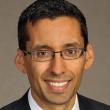
In-Depth Reports
Proliferation for Profit:
Since the 1955 Bandung conference of non-aligned countries, North Korea has based its foreign policy on the concept of chu'che (self-reliance) and has sought to establish an independent position in the developing world so as to acquire international legitimacy. Its motivations for involvement in the Middle East have gradually shifted
Jul 1, 1994


